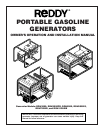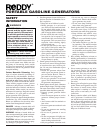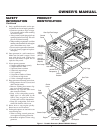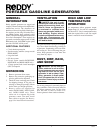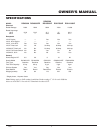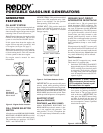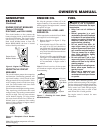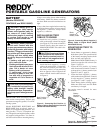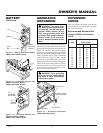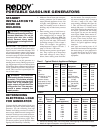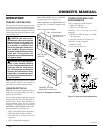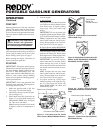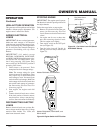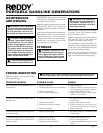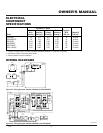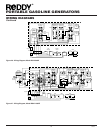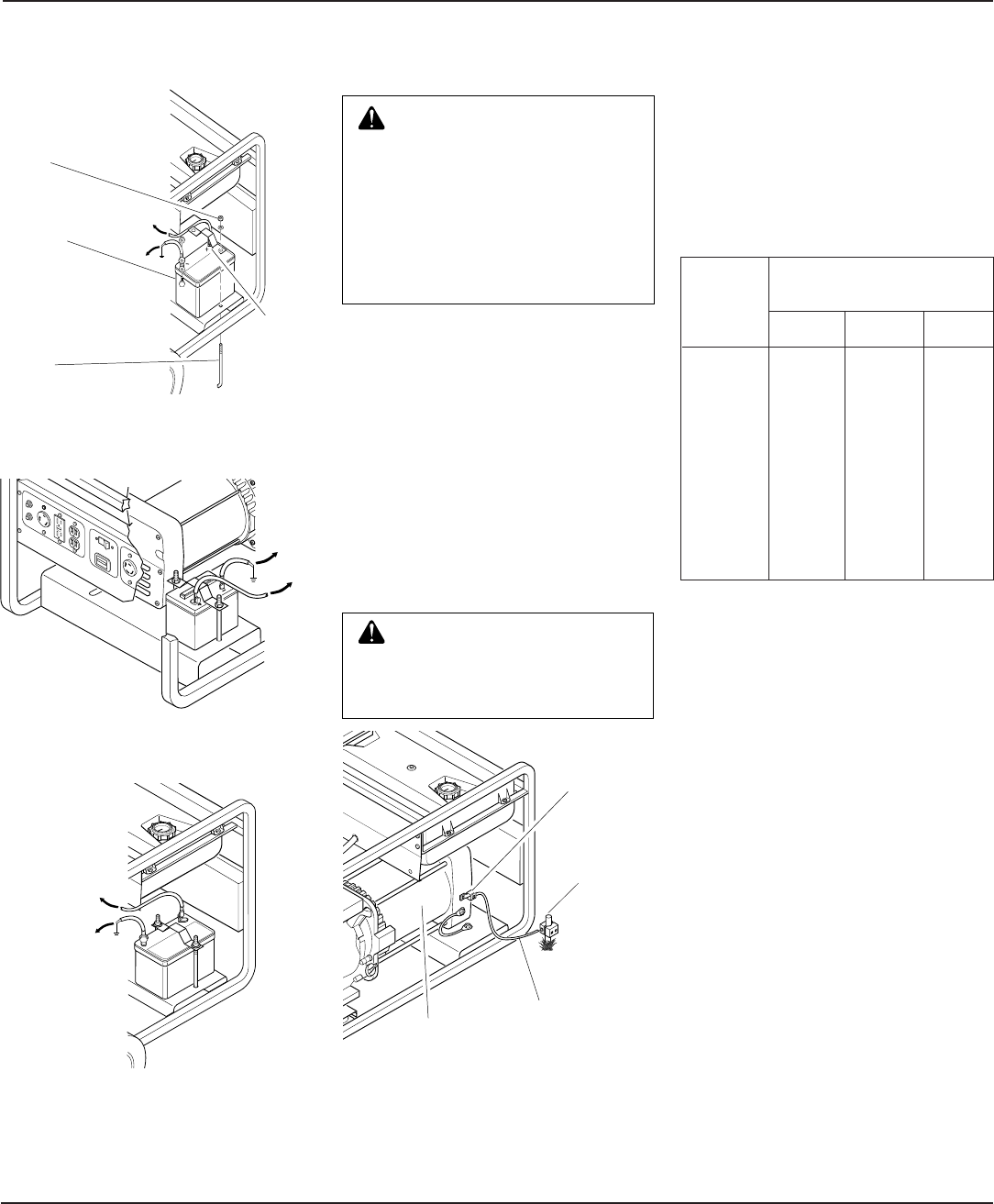
9
104960
OWNER’S MANUAL
Ampere AWG for Length of
Load Cord in Feet
50' 100' 150'
2181818
3181818
4161616
5161616
6161614
8161412
10 16 14 12
12 14 14 12
14 14 12 10
16 12 12 10
20 10 10 8
FUEL
F
FUEL
F
TO STARTER
SOLENOID
TO ENGINE
BLOCK
1
2
0
O
N
L
Y
1
2
0
2
4
0
V
E
N
M
0
0
0
0
0
0
0
5
H
O
U
R
S
1
/1
0
FULL POWER
Figure 12 - Connecting Positive and
Negative Cables to Battery
(Model RGH7500IE Shown)
BATTERY
Continued
Figure 11 - Battery Hold-Down System
(Model RGH11000IE Shown)
Battery
Mounting
Bracket
FUEL
F
Figure 13 - Connecting Positive and
Negative Cables to Battery
(Model RGH11000IE Shown)
TO
STARTER
SOLENOID
TO
ENGINE
BLOCK
Battery
Hook
Bolt
Nut
Grounding generator helps prevent electric
shock from a ground fault condition. Locate
ground lug on end of generator housing (see
Figure 12). Attach a #10 stranded-copper
ground wire to ground lug. Drive grounding
point into ground. Grounding point can be a
stake, grounding rod, or pipe. Grounding
point should be copper or brass. Attach
ground wire to grounding point. You must
supply the ground wire and grounding point.
These do not come with generator. Follow
the National Electrical Code and all state
and local codes. Consult your power com-
pany or a licensed electrician.
Ground Lug
Ground Wire
Alternator
Copper or Brass
Grounding Point
Figure 14 - Grounding Generator
(Model RGH5500 Shown)
EXTENSION
CORDS
Only use grounded extension cords. Be sure
to use extension cord with proper wire gauge
size. See chart below.
Recommended Minimum Wire
Gauges (AWG) for Extension
Cords
GENERATOR
GROUNDING
WARNING: You must prop-
erly earth-ground generator be-
fore starting. This will help guard
against deadly electric shock.
Only use grounded plugs with
generator. Only use grounded ex-
tension cords. Only use three-
wire or double-insulated power
tools.
WARNING: For a grounding
point, do not use metal pipe be-
ing used to carry combustible
materials or gases.



